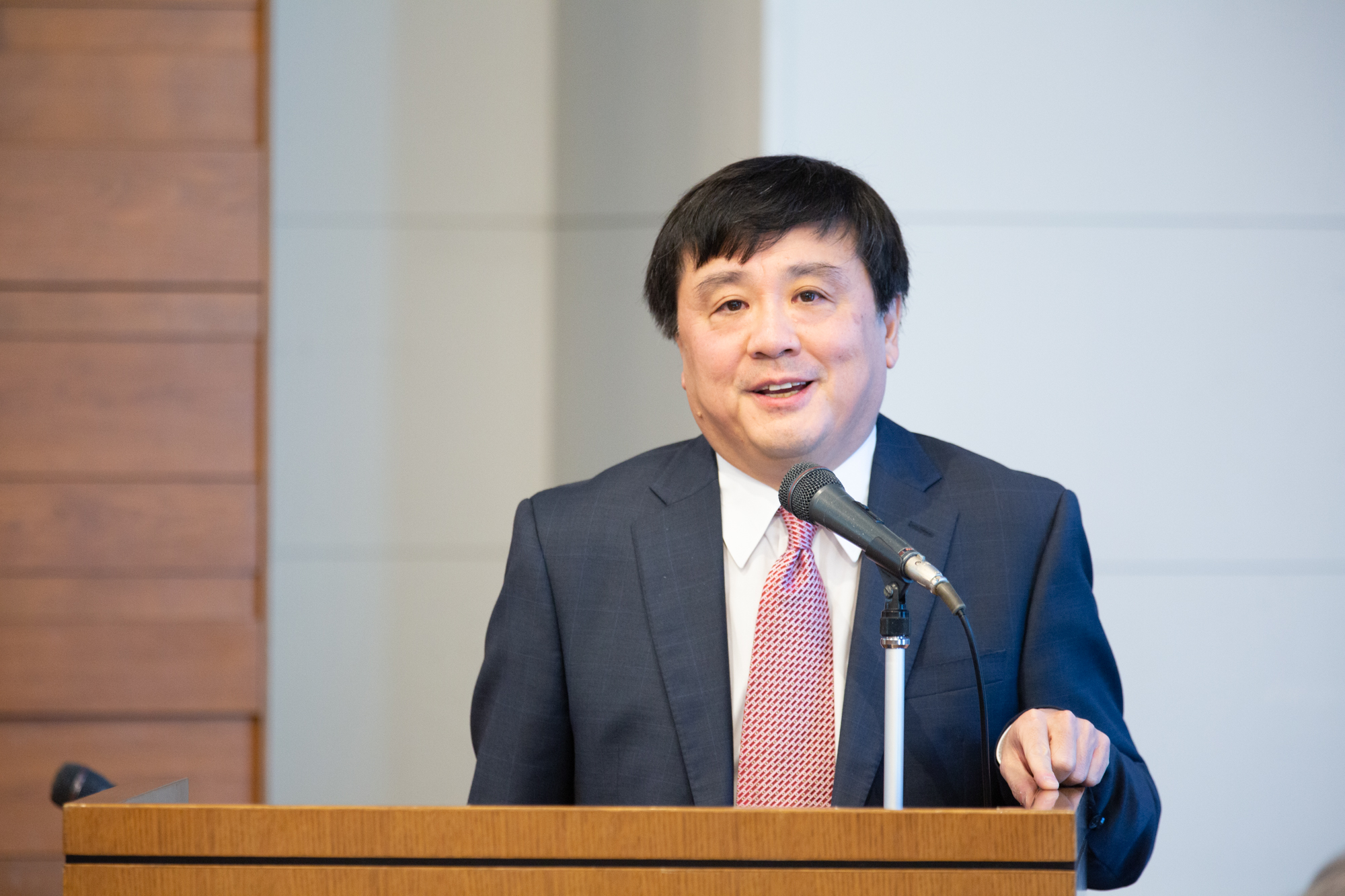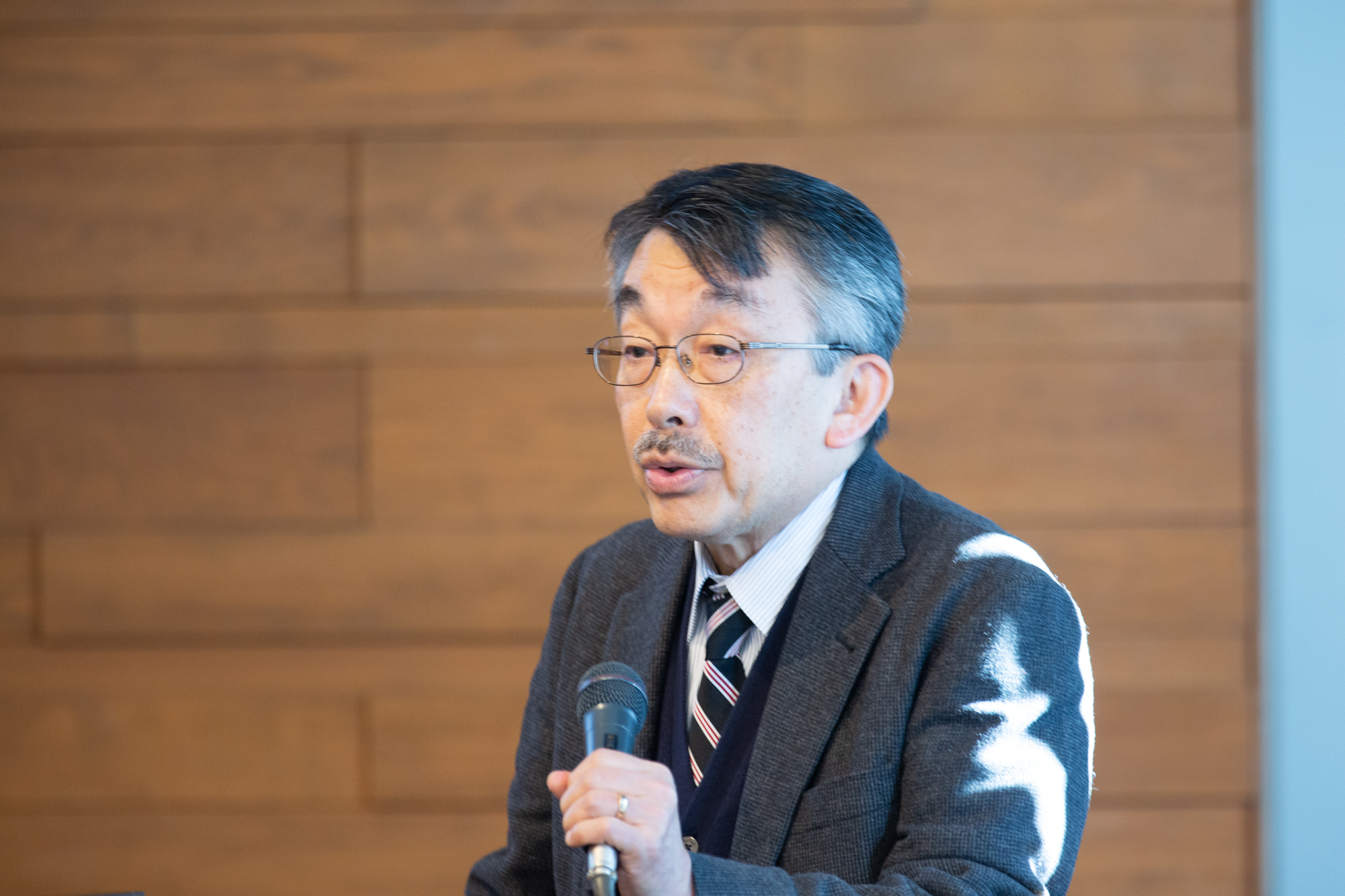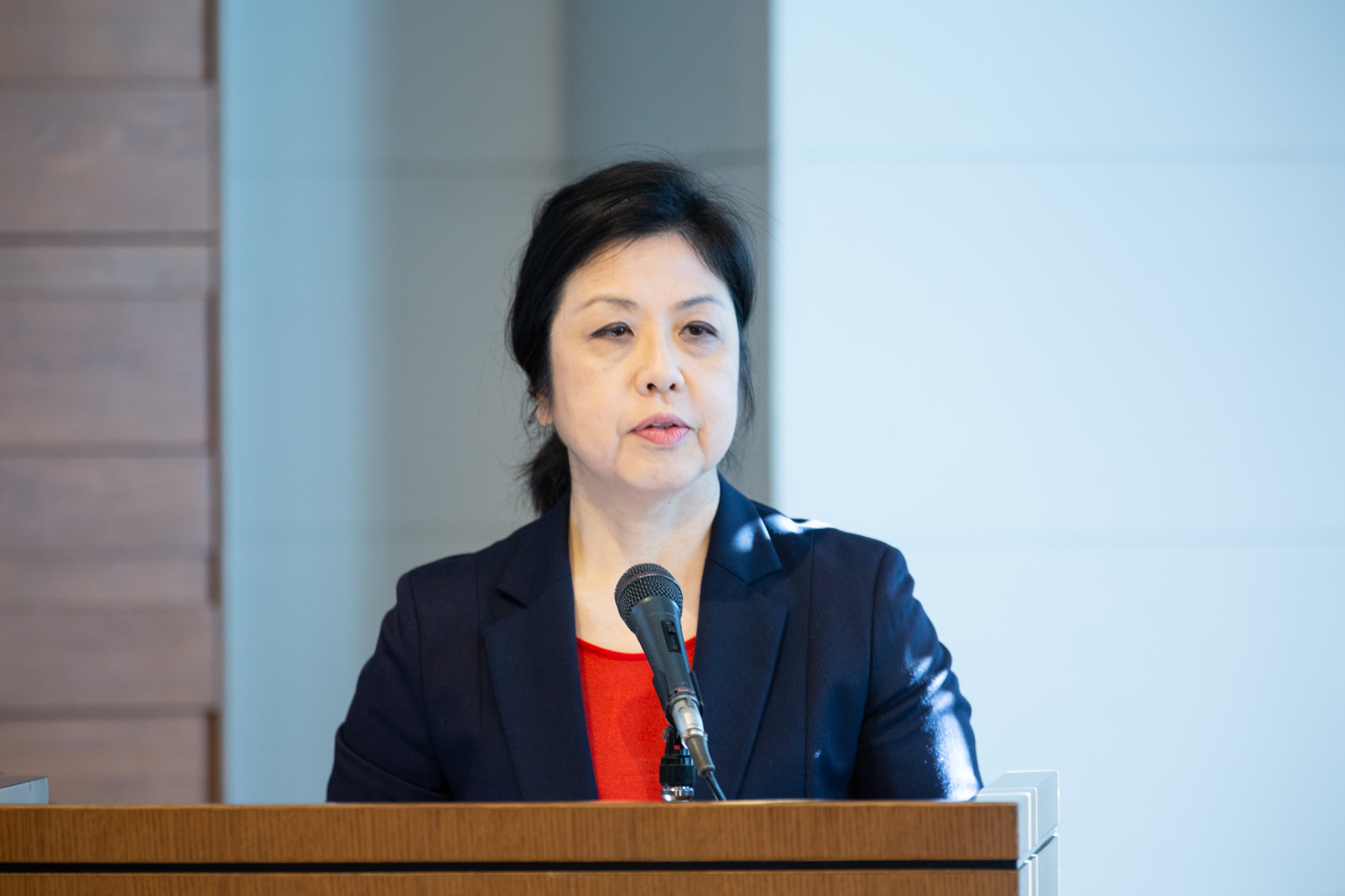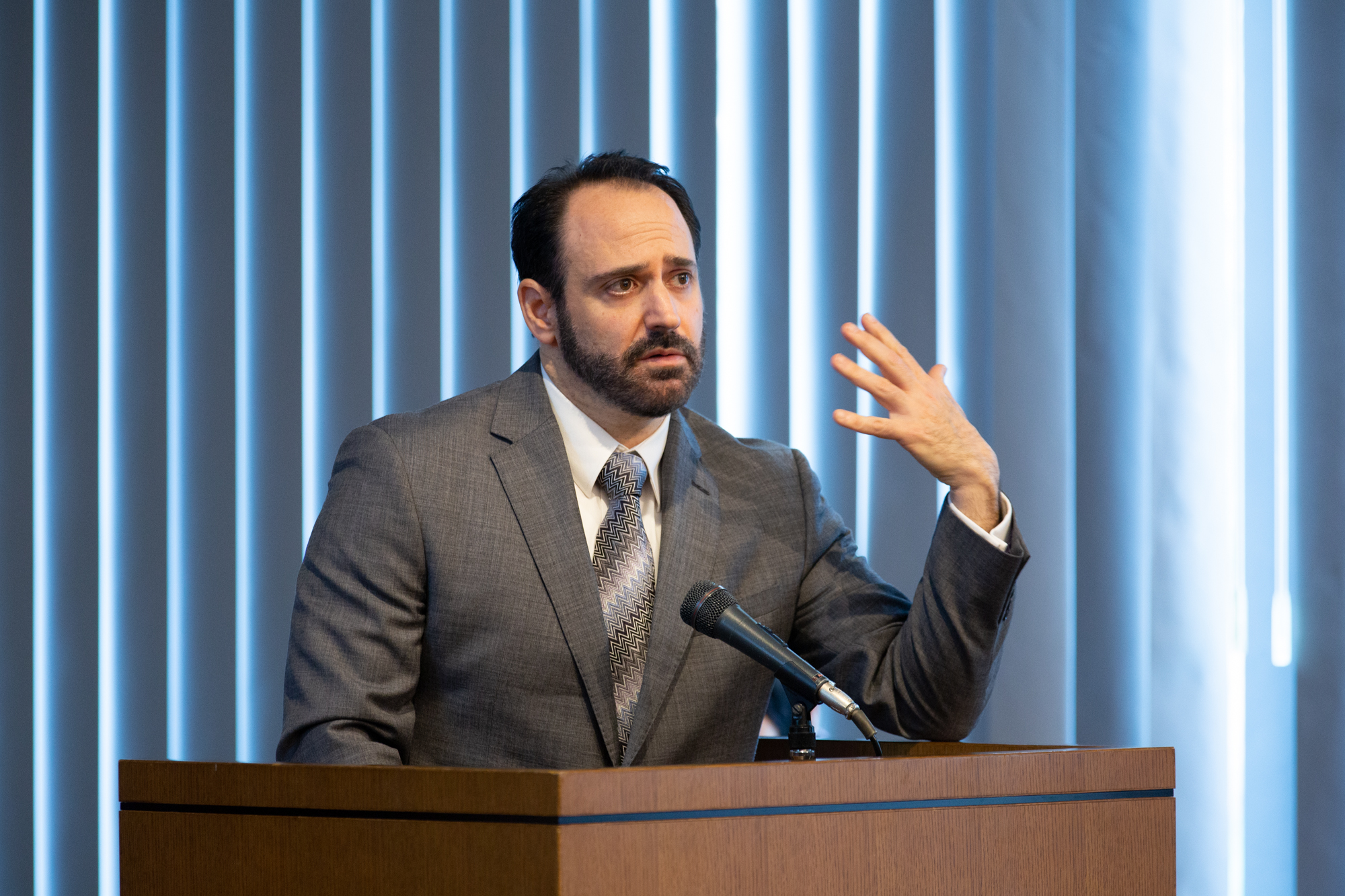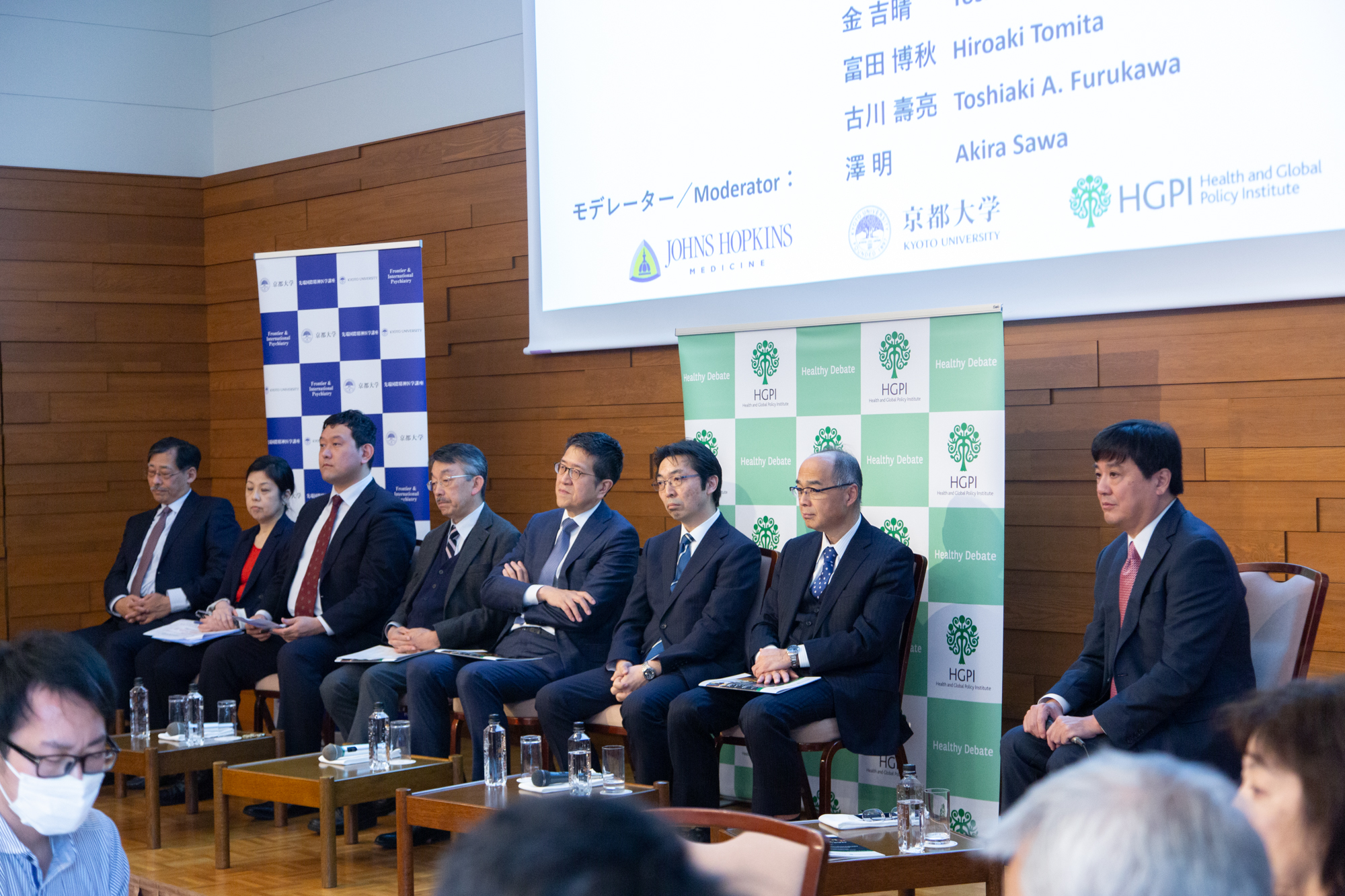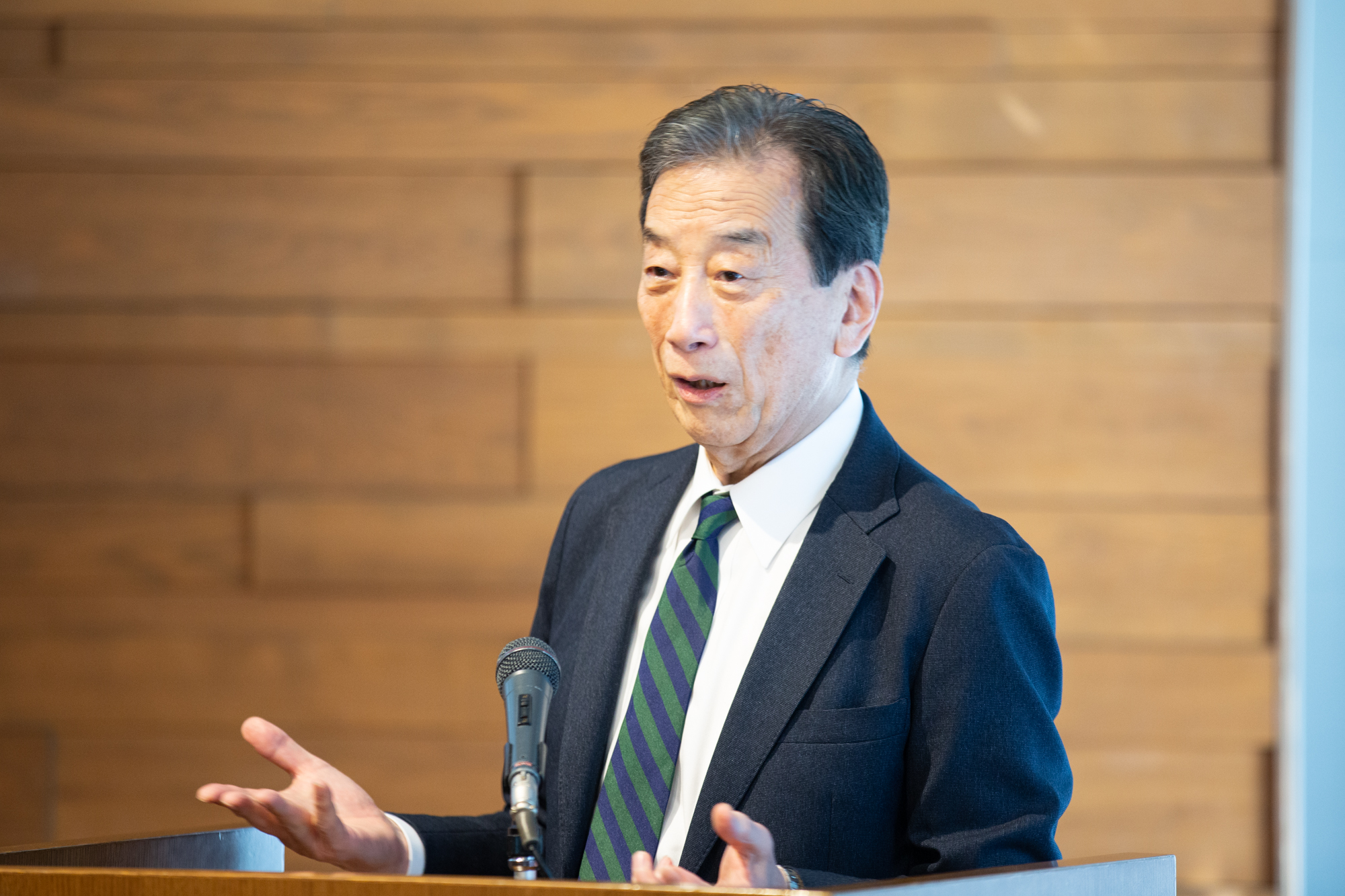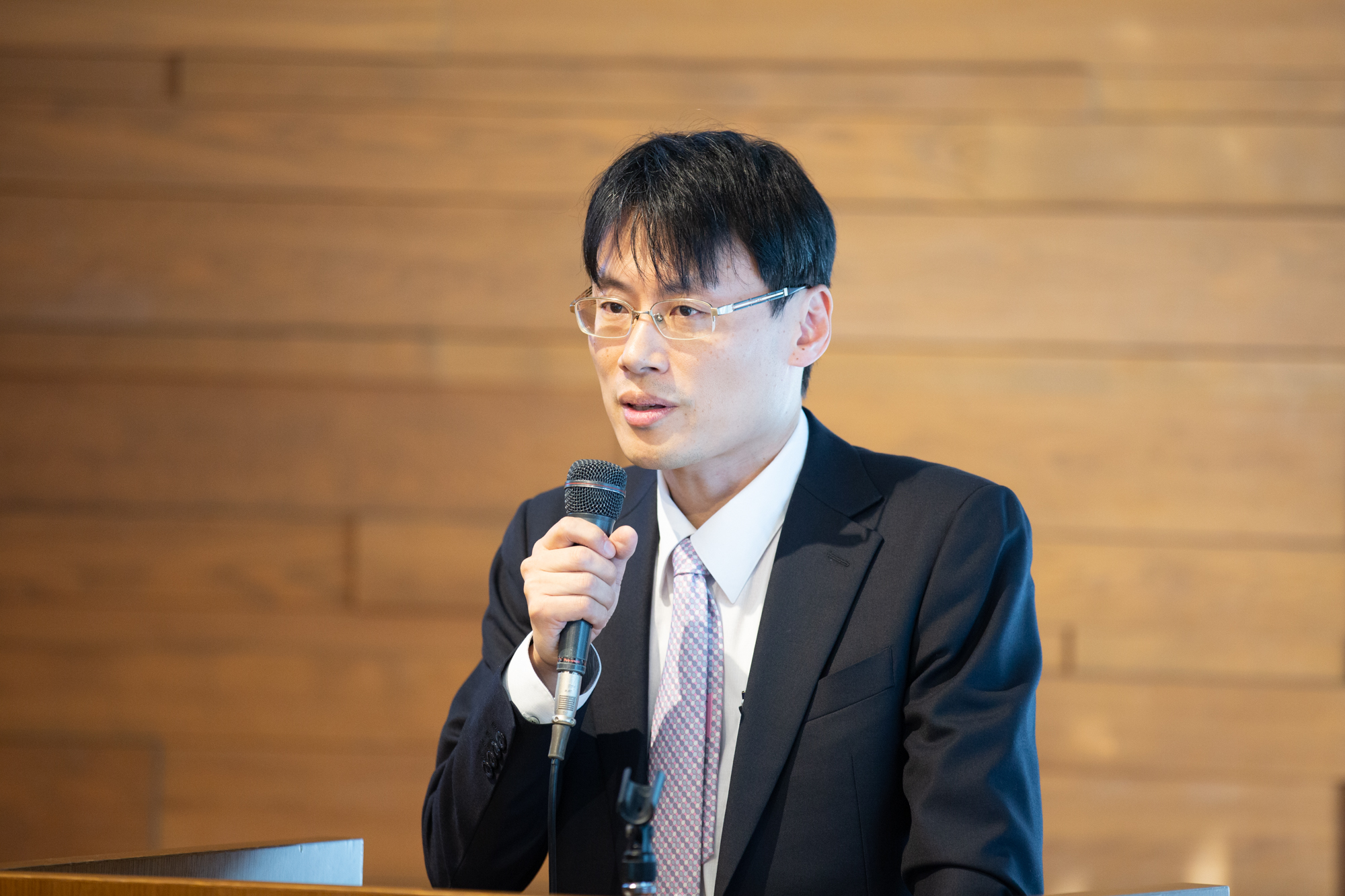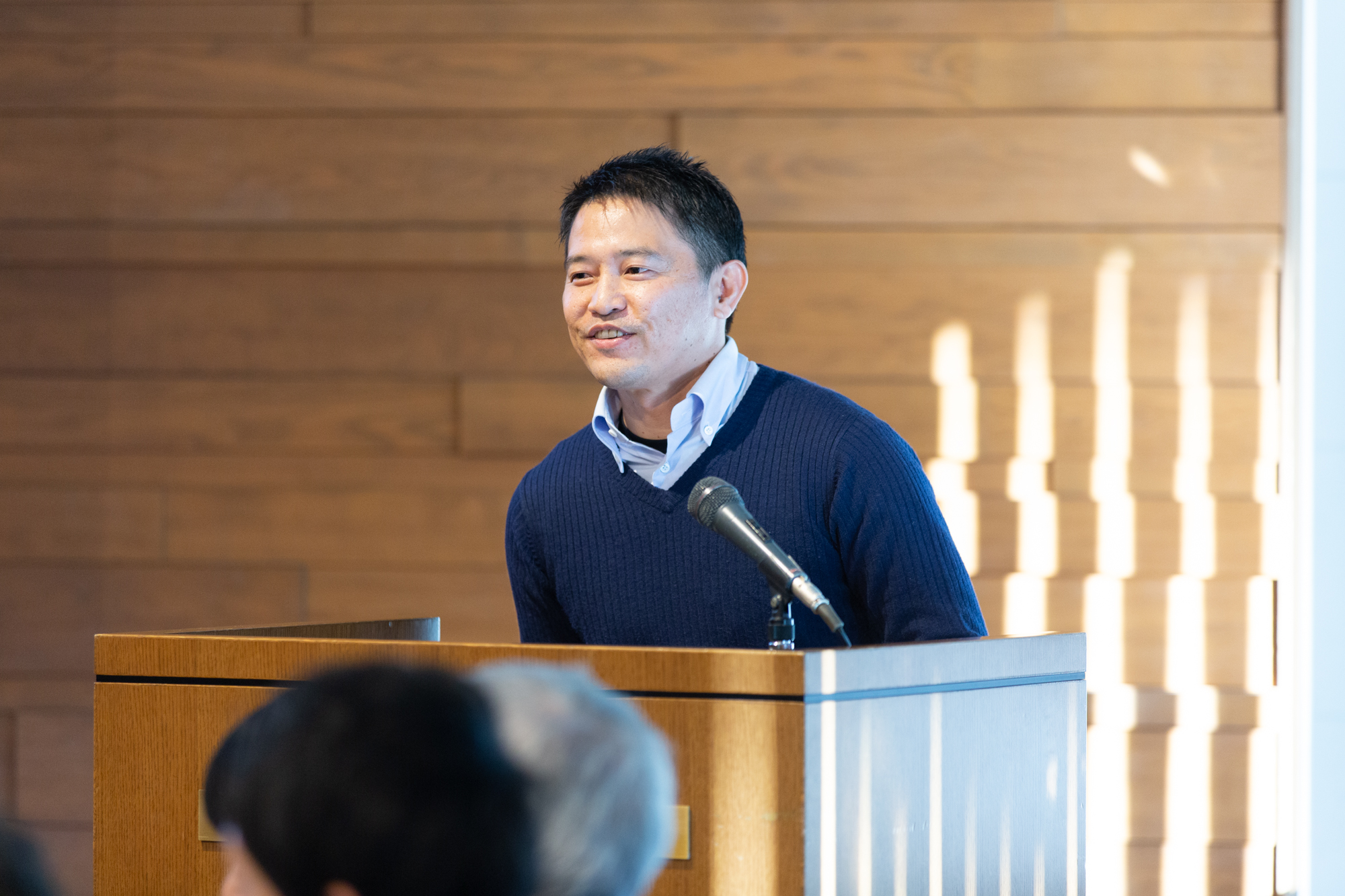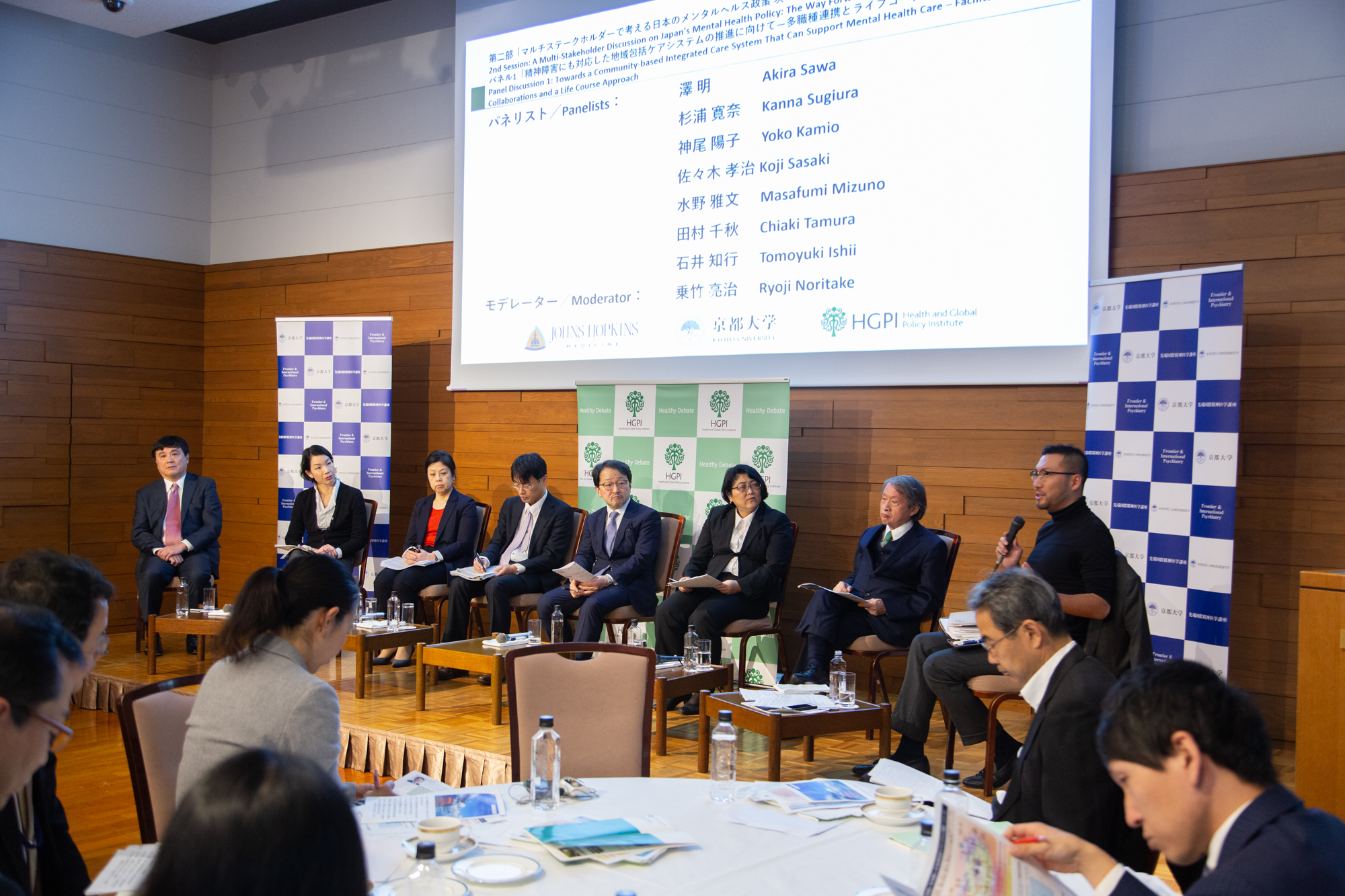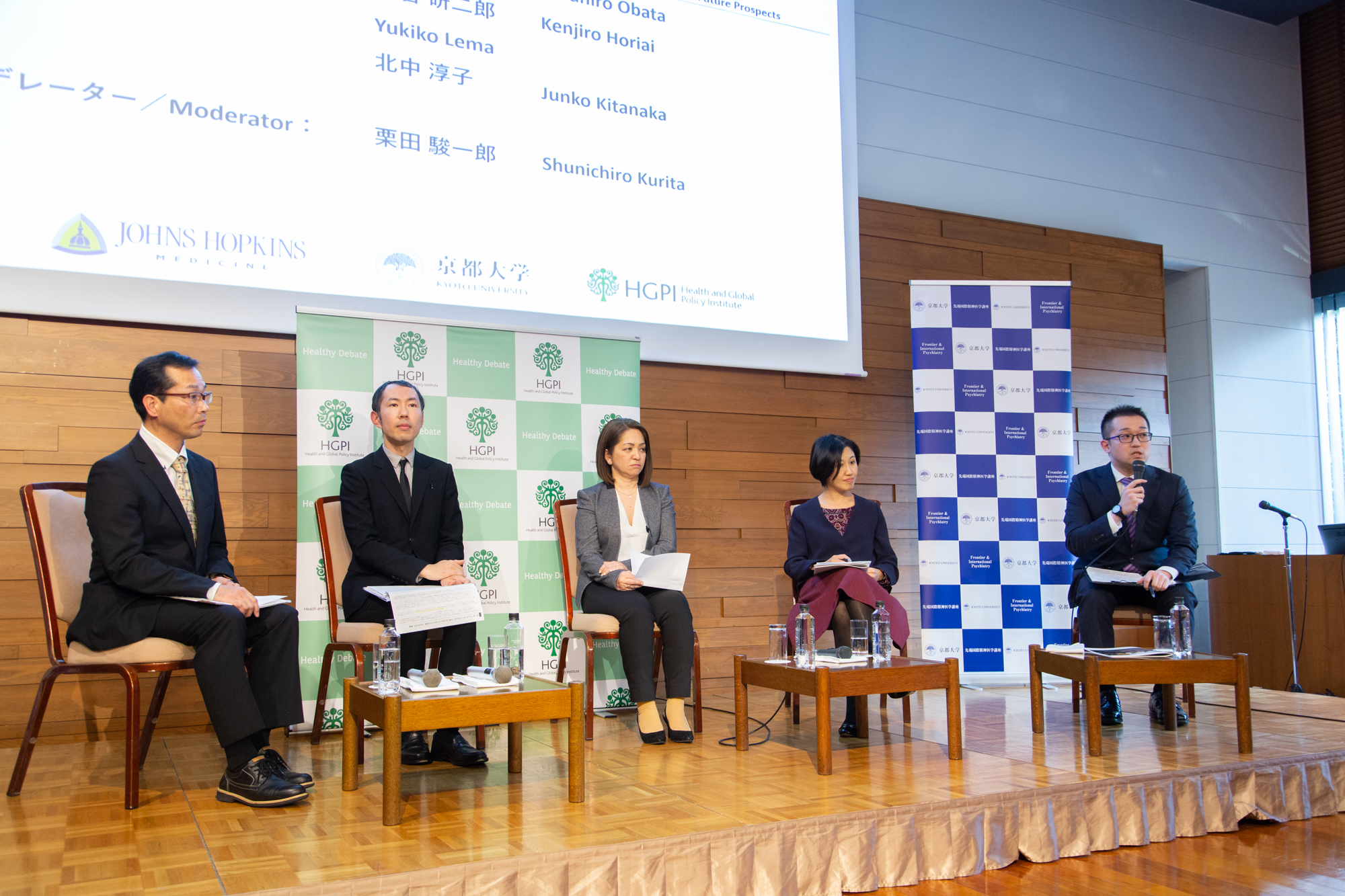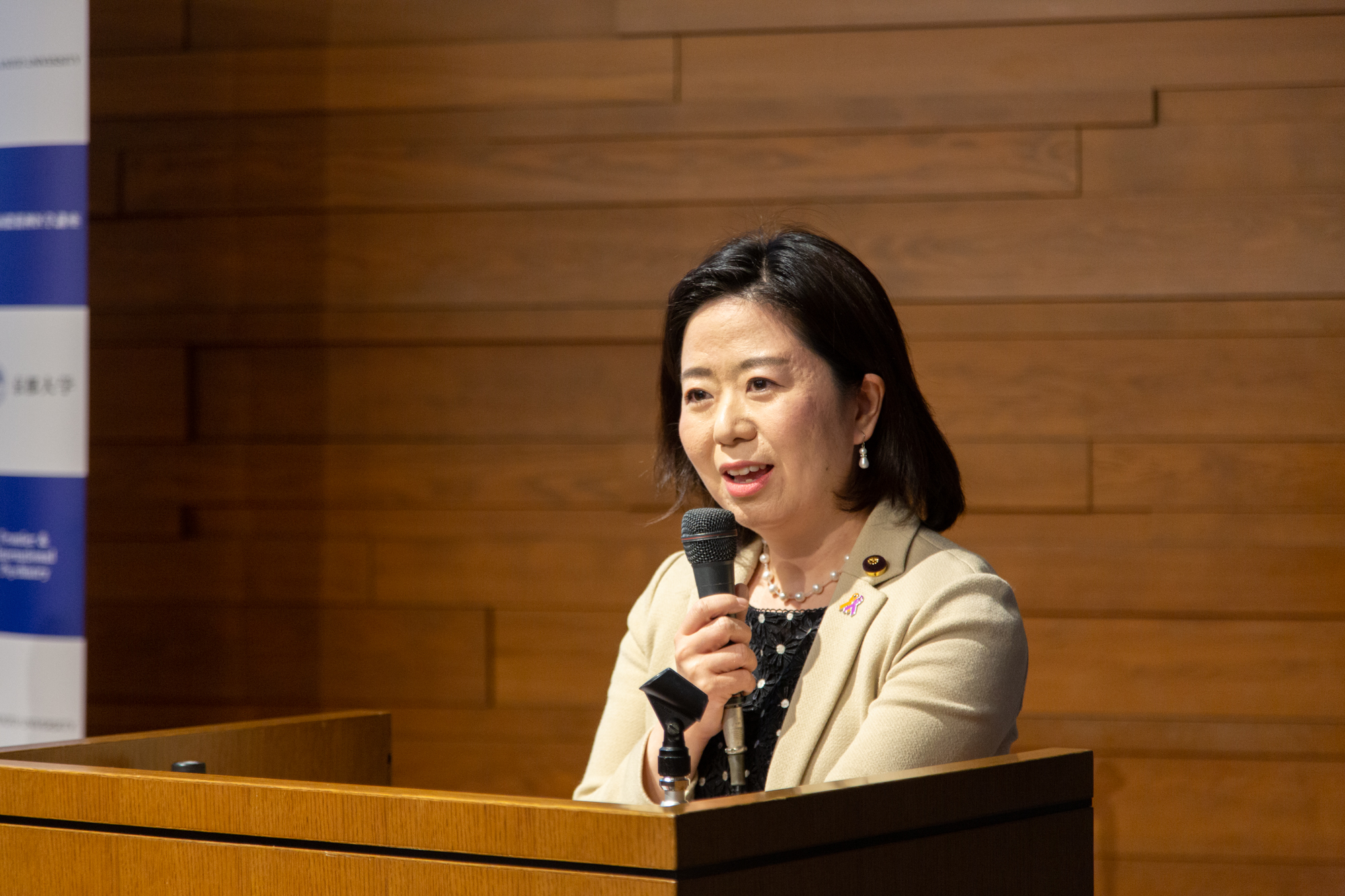[Event Report] “Global Trends and Japan’s Mental Health Policy” Global Expert Meeting (December 18, 2019)
date : 12/23/2019
Tags: Mental Health
![[Event Report] “Global Trends and Japan’s Mental Health Policy” Global Expert Meeting (December 18, 2019)](https://hgpi.org/en/wp-content/uploads/sites/2/A5A4673_web.jpg)
******** The full report published April 21, 2020.
For more information, please refer to the PDF.
English version follows Japanese.
HGPI held “Global Trends and Japan’s Mental Health Policy” Global Expert Meeting. This global expert meeting was co-hosted by the Frontier & International Psychiatry, Graduate School of Medicine, Kyoto University and HGPI with the cooperation from Johns Hopkins University.
Health and Global Policy Institute (HGPI)
Overview of the Global Trends and Japan’s Mental Health Policy project
Developments such as the World Health Organization’s (WHO) Mental Health Action Plan 2013-2020 have driven progress in mental health policy around the globe as international cooperative initiatives and international comparisons have promoted the spread of best practices and other types of information. As for progress in Japan, the Ministry of Health, Labour and Welfare (MHLW) issued the “Vision for Reform of Mental Health and Medical Welfare” in 2004 to outline “a shift from medical care centered on hospitalization to community life” and it has promoted policies aimed at achieving that shift. In addition, mental health was included as a targeted disease in the sixth revision of the Medical Care Plan System which came into effect in 2013. Meanwhile, efforts to build an integrated community care system for mental disorders are currently advancing with the goal of enabling people who have contracted mental disorders to live with peace of mind and be proud of themselves as full members of the community.
However, as of 2014, approximately 3.924 million people are living with mental illness in Japan (hospitalized: approximately 313,000; outpatient: approximately 3.611 million) and their number is increasing. This is greater than the number of people suffering from what is known as the “Four Major Conventional Diseases,” namely cancer, stroke, acute myocardial infarction, and diabetes. The number includes people with mental health conditions experienced in everyday life such as sleep disorders, dependency, and mild depression, as well as those with severe mental disorders requiring inpatient treatment. This in part is related to the diversity of illnesses and patients handled by departments of psychiatry. We are expecting the development of policies with the redefinition of the domains of mental health and mental health policy themselves in mind.
Under these circumstances, compared to the international situation, there are many domains of policy in Japan for which efforts should be intensified in the future. Such domains include promotion of knowledge and understanding of each mental illness among the public; use of approaches based on the needs of people with mental illnesses and others most affected by mental illness; participation in the design and provision of services by people with mental illnesses and others most affected by mental illness; building of patient support systems that unite the government, the public, and various disciplines toward building an integrated community care system that can support mental health care; and building of mental health care based on a life course including prevention. To that end, while urgent reform based on international trends is necessary, policies that provide effective guidance are needed in order to make the transition from existing healthcare provision systems a smooth one. For example, the provision of incentives to existing stakeholders in the event of reform, reevaluation from the perspective of medical economics, and reconsideration in relation to the current status of the policy such as “psychiatry exception” should be taken into consideration.
Taking into account these social demand, Health and Global Policy Institute’s (HGPI) initiated the Global Trends and Japan’s Mental Health Policy project and has listened to domestic and overseas opinion leaders and representatives from organizations in this field from industry, government, academia, and civil society including people with mental illnesses, others most affected by mental illness, and existing stakeholders. We asked the key opinion leaders to serve the advisory board and have been identifying the current challenges and points for discussion facing the mental health policy in Japan and then examining the direction for solving those issues.
We hosted a global expert meeting where advisory board member-centered experts from Japan and overseas express their opinions on the challenges and points for discussion being identified as previously mentioned and the direction for solving those issues. This global expert meeting was co-hosted by the Frontier & International Psychiatry, Graduate School of Medicine, Kyoto University and HGPI with the cooperation from Johns Hopkins University. We would like to take this as an opportunity to let people in Japan and overseas know the necessity of promoting the mental health policy and the way forward through discussions where leading experts and multi-stakeholders from industry, government, academia, and civil society assembled for the meeting.
Furthermore, the points raised in the advisory board discussions and global expert meetings will form the basis of a policy proposal by HGPI in the future to be submitted to policymakers, contributing to the advance of the mental health policy in Japan.
The First Session of the Global Expert Meeting on Global Trends and Japan’s Mental Health Policy
Co-hosts: Frontier & International Psychiatry, Graduate School of Medicine, Kyoto University・Health and Global Policy Institute (HGPI)
Cooperation: Johns Hopkins University
Welcoming Remarks
Akira Sawa (Frontier & International Psychiatry, Graduate School of Medicine, Kyoto University; The Johns Hopkins University School of Medicine, The Johns Hopkins University Bloomberg School of Public Health, Johns Hopkins Schizophrenia Center, Johns Hopkins Hospital)
Keynote Lecture 1: Redefining Mental Health
Shigenobu Kanba (Honorary Professor, Kyushu University; Chairman, Japanese Society of Psychiatry and Neurology)
Keynote Lecture 2: The Ideal Structure of Mental Health Policy Going Forward – Viewing Life Courses in Their Entirety, Including Childhood
Yoko Kamio (Visiting Professor; Institute for Education and Human Development, Fundamental Research Division of Human Development)
Keynote Lecture 3: Access to Medical Care and Mental Health – Examples from the U.S.
Frederick Nucifora (The Johns Hopkins University School of Medicine, Johns Hopkins Schizophrenia Center, Johns Hopkins Hospital)
Panel Discussion: Future Expectations for Mental Health Policy in Japan from the Perspective of Academia
Panelists:
Takeshi Iwatsubo (Professor, Department of Neuropathology, Graduate School of Medicine, The University of Tokyo)
Yoko Kamio
Ryoma Kayano (Technical Officer, WHO Centre for Health Development)
Shigenobu Kanba
Yoshiharu Kim (Director, National Institute of Mental Health)
Hiroaki Tomita (Professor, Department of Psychiatry, Tohoku University Graduate School of Medicine)
Toshiaki A. Furukawa (Professor, Department of Health Promotion and Human Behavior, Health Issues Course, Graduate School of Medicine and Faculty of Medicine, Kyoto University)
Moderator:
Akira Sawa
The Second Session of the Global Expert Meeting on Global Trends and Japan’s Mental Health Policy
Co-hosts: Health and Global Policy Institute (HGPI)・Frontier & International Psychiatry, Graduate School of Medicine, Kyoto University
Cooperation: Johns Hopkins University
Welcoming Remarks
Kiyoshi Kurokawa (Chairman, HGPI)
Keynote Lecture 1: The Current State of Mental Health Policy in Japan
Koji Sasaki (Director, Department of Health and Welfare for Persons with Disabilities, Mental Health, and Disability Health Division, MHLW)
Keynote Lecture: A society where we can be ourselves and each share a bit of happiness
Keigo Kobayashi (Person with Mental Health Condition)
Panel Discussion 1: Towards a Community-based Integrated Care System That Can Support Mental Health Care – Facilitating Multi-Sector Collaborations and a Life Course Approach
Panelists:
Chiaki Tamura (YPS Yokohama Peer Staff Association)
Yoko Kamio (Visiting Professor; Institute for Education and Human Development, Fundamental Research Division of Human Development)
Akira Sawa (Frontier & International Psychiatry, Graduate School of Medicine, Kyoto University; The Johns Hopkins University School of Medicine, The Johns Hopkins University Bloomberg School of Public Health, Johns Hopkins Schizophrenia Center, Johns Hopkins Hospital)
Masafumi Mizuno (Head Professor, Department of Neuropsychiatry, Toho University School of Medicine)
Tomoyuki Ishii (Director, Japan Psychiatric Hospitals Association)
Koji Sasaki
Kanna Sugiura (Research Fellow, HGPI)
Moderator:
Ryoji Noritake (CEO, HGPI)
Panel Discussion 2: Issues Related to the Participation of People Most Affected in Mental Health Policy, and Future Prospects
Panelists:
Yasuhiro Obata (The National Federation of Associations of Families with The Mental Illness in Japan (Common name: Minna-net))
Kenjiro Horiai (YPS Yokohama Peer Staff Association)
Junko Kitanaka (Professor, Faculty of Letters, Keio University)
Yukiko Lema (Clinical Research Program Manager, The Johns Hopkins Schizophrenia Center)
Moderator:
Shunichiro Kurita (Senior Associate, HGPI)
Closing Remarks
Hanako Jimi (Member of the House of Councillors)
(Photographed by: Kazunori Izawa)
Top Research & Recommendations Posts
- [Policy Recommendations] The Path to a Sustainable Healthcare System: Three Key Objectives for Public Deliberation (January 22, 2026)
- [Research Report] The 2025 Public Opinion Survey on Healthcare in Japan (March 17, 2025)
- [Research Report] Perceptions, Knowledge, Actions and Perspectives of Healthcare Organizations in Japan in Relation to Climate Change and Health: A Cross-Sectional Study (November 13, 2025)
- [Policy Recommendations] Reshaping Japan’s Immunization Policy for Life Course Coverage and Vaccine Equity: Challenges and Prospects for an Era of Prevention and Health Promotion (April 25, 2025)
- [Research Report] The 2023 Public Opinion Survey on Satisfaction in Healthcare in Japan and Healthcare Applications of Generative AI (January 11, 2024)
- [Research Report] AMR Policy Update #4: Cancer Care and AMR (Part 1)
- [Public Comment Submission] “Assessment Report on Climate Change Impacts in Japan (Draft Overview)” (December 24, 2025)
- [Policy Recommendations] Developing a National Health and Climate Strategy for Japan (June 26, 2024)
- [Research Report] The Public Opinion Survey on Child-Rearing in Modern Japan (Final Report) (March 4, 2022)
- [Research Report] Survey of Japanese Physicians Regarding Climate Change and Health (December 3, 2023)
Featured Posts
-
2026-01-09
[Registration Open] (Hybrid Format) Dementia Project FY2025 Initiative Concluding Symposium “The Future of Dementia Policy Surrounding Families and Others Who Care for People with Dementia” (March 9, 2026)
![[Registration Open] (Hybrid Format) Dementia Project FY2025 Initiative Concluding Symposium “The Future of Dementia Policy Surrounding Families and Others Who Care for People with Dementia” (March 9, 2026)](https://hgpi.org/en/wp-content/uploads/sites/2/dementia-20260309-top.png)
-
2026-02-05
[Registration Open] (Webinar) The 141st HGPI Seminar “Current Status and Future Prospects of Korea’s Obesity Policy: Voices of People with Lived Experience in Policy Promotion” (March 3, 2026)
![[Registration Open] (Webinar) The 141st HGPI Seminar “Current Status and Future Prospects of Korea’s Obesity Policy: Voices of People with Lived Experience in Policy Promotion” (March 3, 2026)](https://hgpi.org/en/wp-content/uploads/sites/2/hs141-top-1.png)
-
2026-02-06
[Research Report] AMR Policy Update #5: Cancer Care and AMR (Part 2)
![[Research Report] AMR Policy Update #5: Cancer Care and AMR (Part 2)](https://hgpi.org/en/wp-content/uploads/sites/2/HGPI_20260204_AMR-Policy-Update-5.png)




